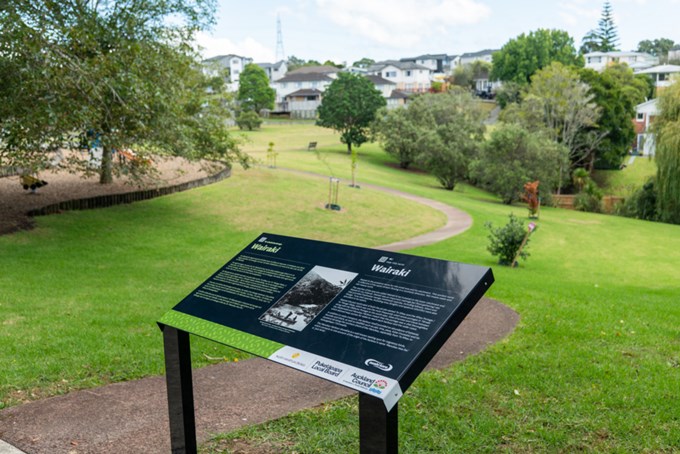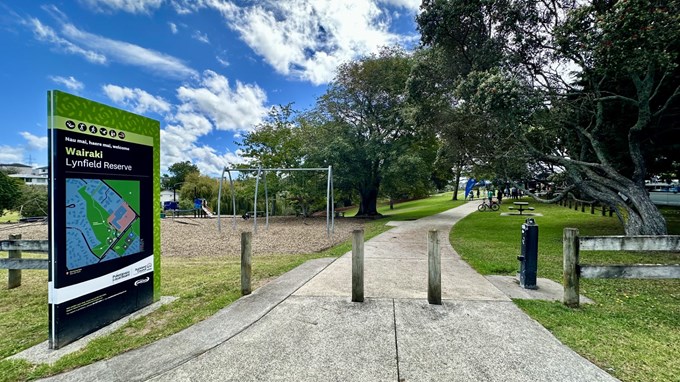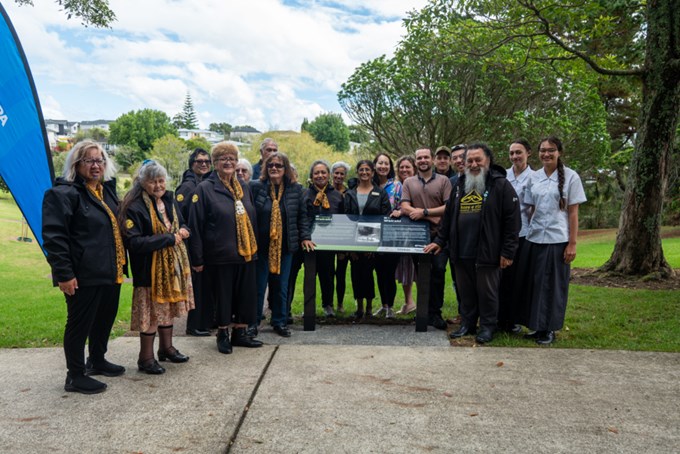The return of the ancestral name to one of Puketāpapa’s most popular parks has been celebrated with a ceremony unveiling signage bearing the new dual name Wairaki / Lynfield Reserve.
It’s the first park in Puketāpapa to have its returned name signposted. In 2022, Puketāpapa Local Board formally adopted traditional Māori names for 17 parks which have been given dual names.
Wairaki is the name for the local stream and catchment area that includes Lynfield Reserve. The awa (stream) starts just south of this reserve and passes through here on its way north, eventually finding its way to the harbour at Lynfield Cove. This ancient name is reflective of the fact the stream flows through this area in a northerly direction. Wai meaning water and raki meaning north.
The return of traditional names to the whenua (land) helps to raise visibility of te reo Māori and restore mana and mauri to the land.
Puketāpapa Local Board Chair, Ella Kumar is delighted the board has enabled this project.
“This is an exciting moment for Puketāpapa - we are honoured to return the reserve’s ancestral name Wairaki, provided by iwi.
“It’s more important than ever to preserve these layers of history to preserve the area’s traditional narrative as our multi-cultural community continues to diversify,” she says.
Wairaki was an important mahinga kai (food gathering) site that provided freshwater taonga species (whitebait), including kōkopu, kōaro and īnanga. Tuna (eel) species, including ōrea (longfin) and papakura (shortfin) were also abundant in its waters.
“And it is great to know the meaning of the park’s traditional name and to better understand the huge importance of the awa and its valuable attributes in the past,” says Chair Kumar.
“We look forward to working with iwi on the next tranche of site names and narratives being returned to the whenua at many of our other parks.”
This mahi is part of the local board’s involvement in Auckland Council’s Te Kete Rukuruku project, a culture and identity programme to collect and share the stories unique to Māori in Auckland.
Stay updated
Sign up for monthly local E news and receive the latest information and events direct to your inbox here or follow @puketapapa on Facebook here.




